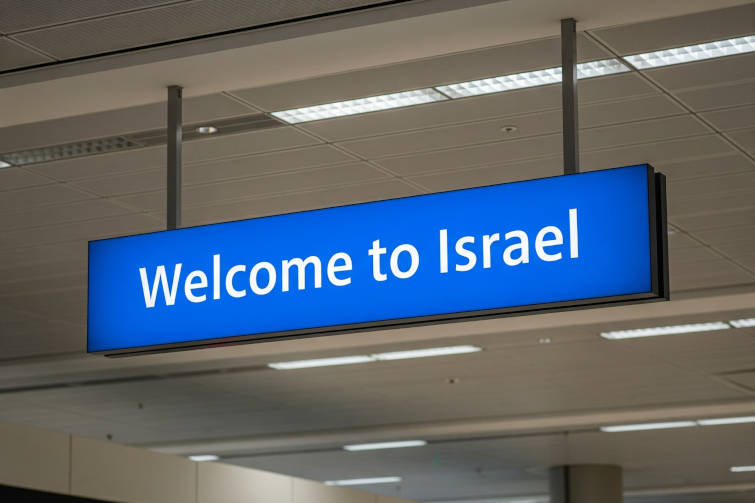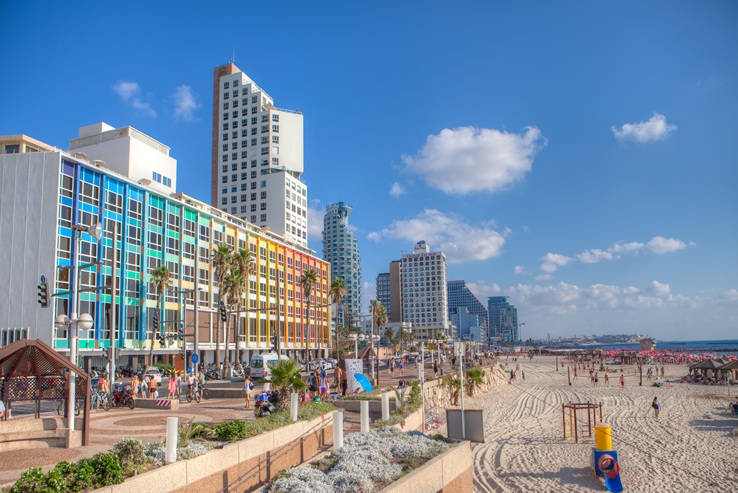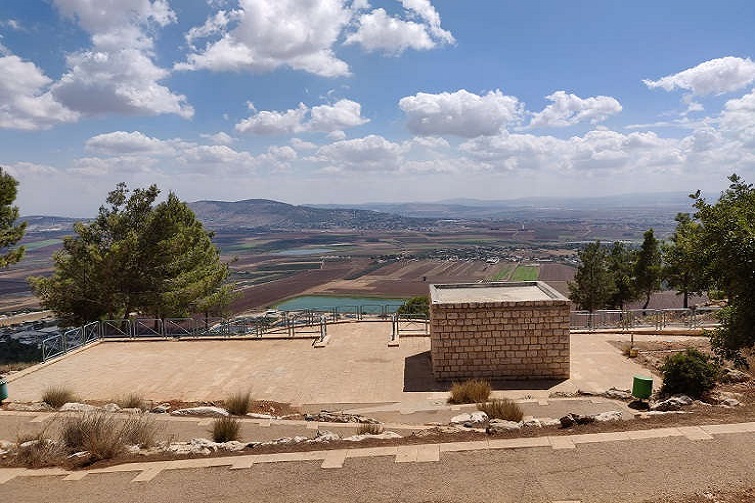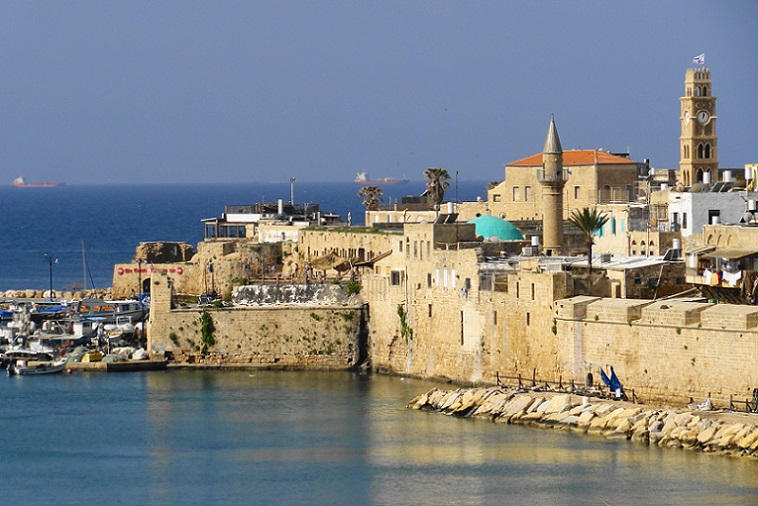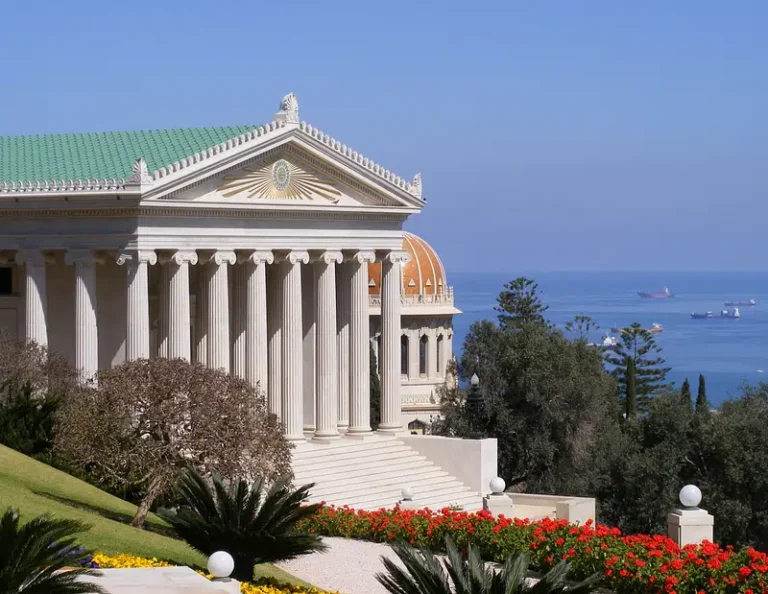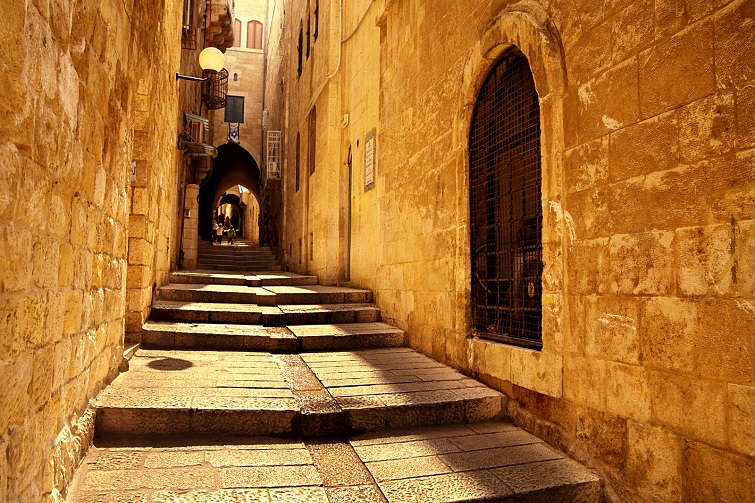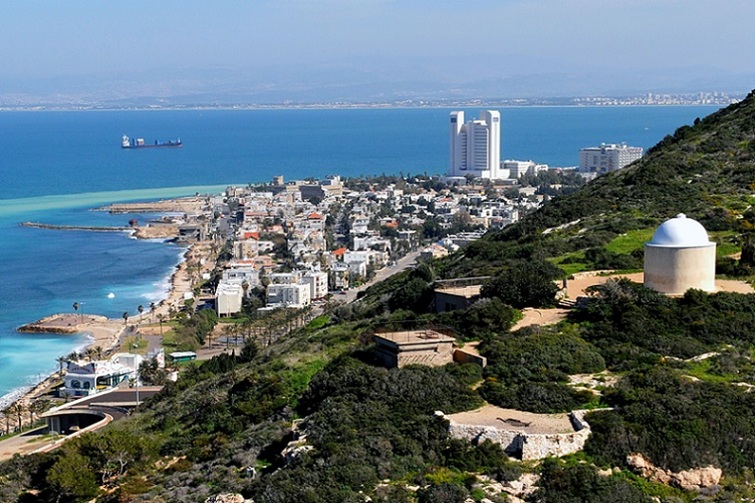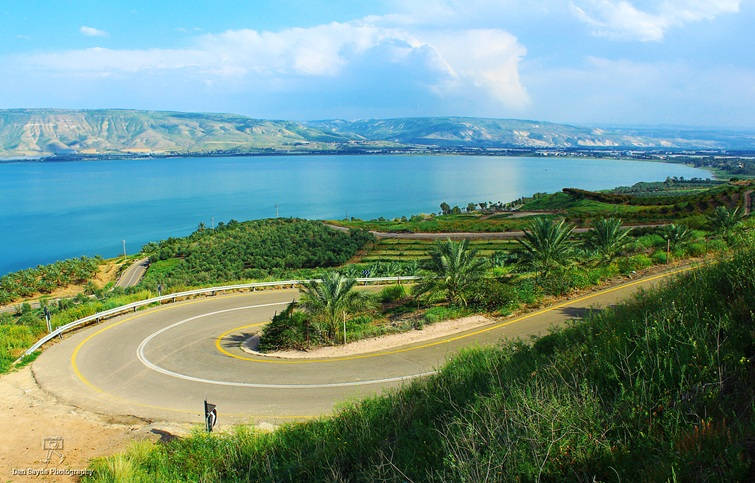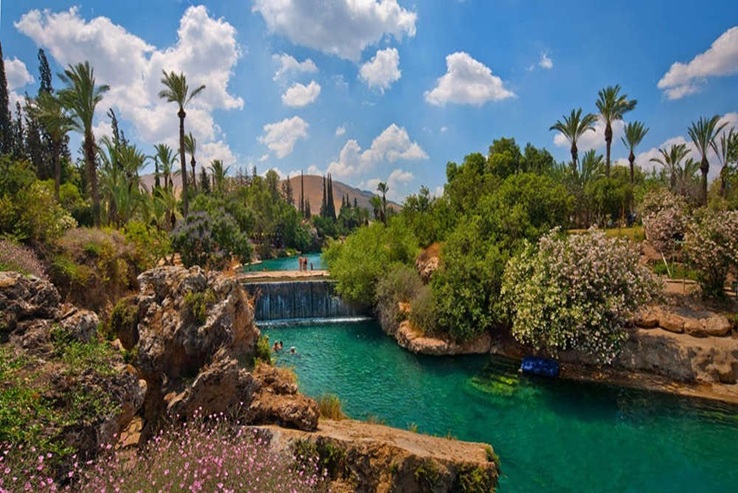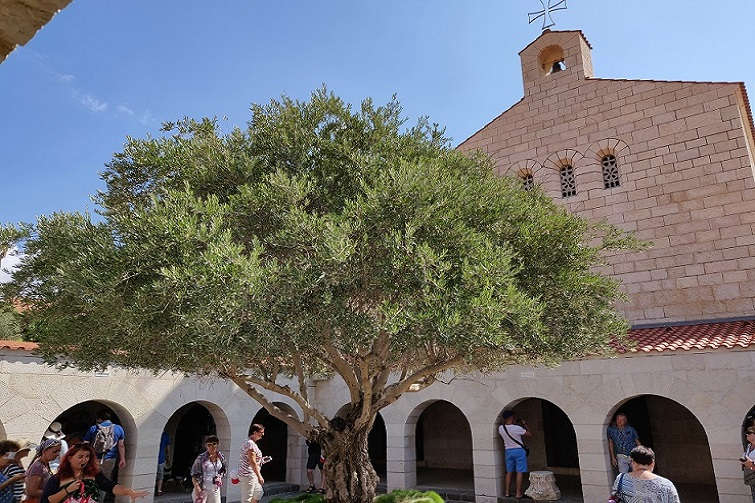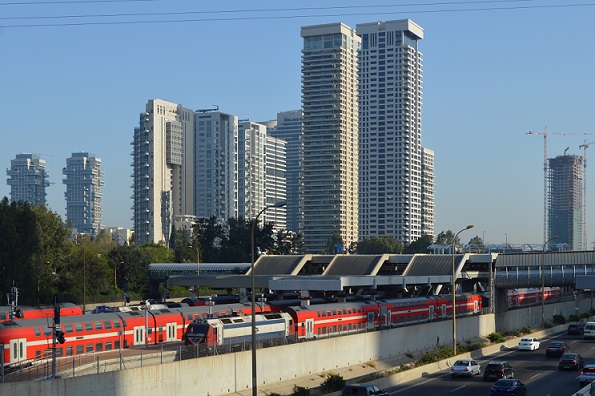The Dead Sea
The World’s Largest Natural Spa
Revised and Updated – April 2025
Table of Contents
- Traveling to the Dead Sea: The Lowest Place on Earth
- The Historical and Religious Significance of the Dead Sea
- What to Expect at the Dead Sea
- Planning Your Visit
- Going on a Day Trip to the Dead Sea
- Exploring Beyond the Dead Sea
- Why Visit the Dead Sea?
- Thank you for visiting my website!
- FAQ: Visiting the Dead Sea
- Related Posts
Traveling to the Dead Sea: The Lowest Place on Earth
- Located in a desert rift valley between Israel and Jordan, the Dead Sea is a geological marvel famed as the lowest point on Earth at 430 meters below sea level. This hypersaline lake, where visitors float effortlessly due to its high salt content, serves as a renowned wellness center that draws international travelers seeking relaxation and renewal in its luxurious hotels and spa facilities, utilizing the area’s natural resources and enjoying their health benefits. Amid stark desert landscapes, it offers a surreal experience that also attracts adventurers and history buffs.
- While many travelers choose to spend a few days at the Dead Sea, it’s just as common to experience it on a day trip. A popular option is to combine a short dip in the salty waters with a visit to nearby Masada, Ein Gedi Nature Reserve, or any of the various attractions this unique region has to offer.
- This guide covers everything you need to know for your visit – from essential information to practical travel tips.
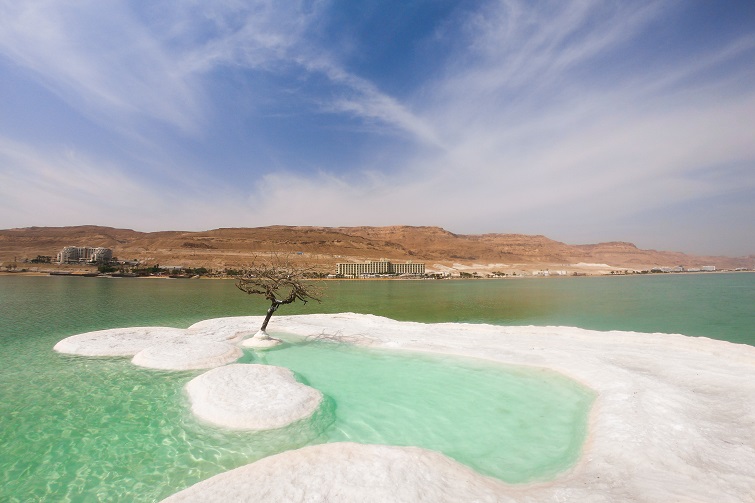
The Historical and Religious Significance of the Dead Sea
- The Dead Sea’s history spans millennia, tied to biblical tales and ancient civilizations. Known as the “Salt Sea” in the Hebrew Bible, it’s linked to Sodom and Gomorrah’s destruction (Genesis 19) and served as a refuge for King David (1 Samuel 23). The nearby Qumran caves yielded the Dead Sea Scrolls, 2nd-century BCE texts that revolutionized biblical scholarship.
- In Roman times, its mineral-rich waters and mud were prized for healing, a tradition that persists today. Herod the Great built Masada, a clifftop fortress overlooking the sea, as a stronghold later immortalized by the Jewish Zealots’ stand against Rome in 73 CE.
- Today, the Dead Sea’s blend of natural wonder and historical weight makes it a timeless destination.
What to Expect at the Dead Sea
The Dead Sea region, with its public beaches and private resorts, offers a unique blend of relaxation and exploration. Here’s what you can expect to encounter:
- Floating in the Dead Sea: The water’s 34% salinity lets you float effortlessly, a buoyant sensation unlike any other. The experience of feeling almost weightless is a must-try highlight of any visit.
- Therapeutic Mud: The black mineral-rich mud along the shore is renowned for its skin-healing properties. Smear it on, let it dry, and wash it off in the sea for a natural spa experience. Its slightly pungent scent is a small price for the rejuvenating effect.
- Desert Scenery: The surrounding Judean Desert, with its golden hills and dramatic cliffs, offers striking photo ops against the sea’s shimmering blue. The stark contrast of arid land and water creates a surreal, timeless backdrop.
- Ein Bokek Beach: Ein Bokek Beach is a free public spot offering basic amenities like shaded areas, changing rooms, nearby shops, and showers to rinse off the salt. Unlike the pricier, less accessible, and often crowded private beaches to the north, Ein Bokek provides a more relaxed and authentic experience. It’s the preferred choice for travelers visiting the Dead Sea on a day trip.
- Visitor Amenities: At Ein Bokek, you’ll find shops for essentials, as well as a few cafes and restaurants, perfect for a relaxing lunch break. The beach area is equipped with shaded spots, changing rooms, and restrooms, ensuring a comfortable and convenient visit for both solo travelers and families.
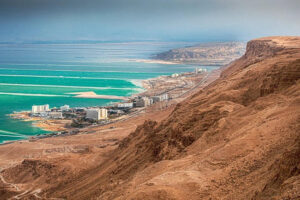
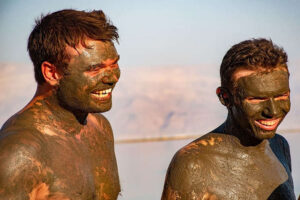

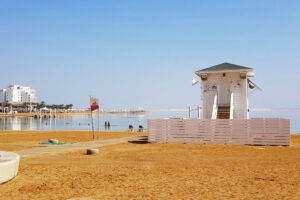
Planning Your Visit
Since the Dead Sea is a large lake, distances are typically measured to the hotel area in Ein Bokek, a popular base for visitors. It is located 170 kilometers (106 miles) from Tel Aviv, and 110 kilometers (68 miles) from Jerusalem. Masada and Ein Gedi Nature Reserve, both located just a short distance from Ein Bokek, are popular additions to a day trip to the Dead Sea
Getting There
- By Car: From Tel Aviv, it’s a 2-hour drive to Masada or 2.5 hours to Ein Bokek via Route 1 and Route 90. From Jerusalem, it’s a 1.5-hour drive to Ein Bokek via Route 1. Pay parking is available near Ein Bokek’s public beach.
- By Tour: Tours from Tel Aviv or Jerusalem often combine the Dead Sea with Masada, offering guided day trips that include transportation.
- Public Transport: From Tel Aviv, Egged bus 421 runs to Ein Bokek twice daily, taking about 2.5 to 3 hours. From Jerusalem, Egged buses 486 and 444 operate several times a day to Ein Bokek, with a travel time of 1.5 to 2 hours. It’s recommended to book tickets in advance through Egged’s website, mobile app, or customer service center by phone (*2800), with tickets priced at 17 ILS. Note that no trains serve the area.
- Private Taxi: For a more flexible and comfortable option, consider booking a private taxi for your day trip to the region. This allows you to customize your itinerary, travel at your own pace, and enjoy door-to-door service. It’s especially convenient for travelers who want to make the most of their day, offering the freedom to visit multiple sites without relying on limited bus schedules or unwieldy tour groups.
💡Need to get from Ben Gurion Airport to the Dead Sea? Check out my guide on getting from Ben Gurion Airport to Ein Bokek for all your options.
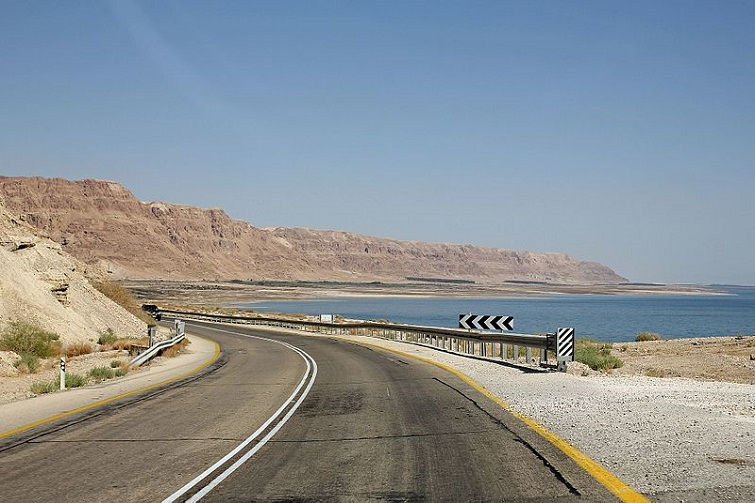
Opening Hours and Admission
- Public beaches like Ein Bokek are free and open 24/7. Resorts charge for spa access.
What to Bring
- Clothing: Bring a swimsuit, flip-flops, and a towel. Loose, breathable layers are also essential to protect against the sun and heat, especially during peak hours.
- Sun Protection: The desert sun can be intense, so pack a high-SPF sunscreen, a wide-brimmed hat, and sunglasses. Don’t forget lip balm with sun protection, as the dry air can easily lead to chapped lips.
- Water and Snacks: While there are cafes available near the beaches, it’s always a good idea to bring extra water and snacks to stay hydrated and energized in the heat.
- Camera: The stunning views of the sea, mud, and desert landscapes are truly photo-worthy, so don’t forget your camera or smartphone. A waterproof phone case is also recommended if you plan to take photos while floating in the sea.
- Health Essentials: If you have sensitive skin, the Dead Sea’s high salt content can be harsh. Bring moisturizers, a gentle cleanser, and a small first-aid kit with basics like band-aids and antiseptic.
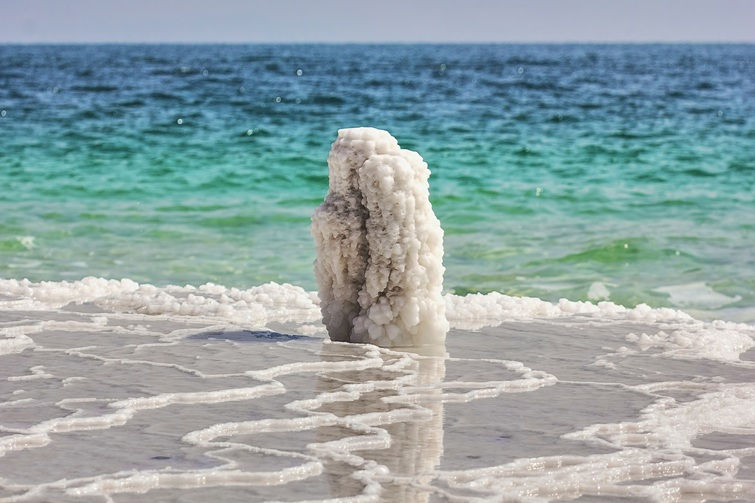
Safety Considerations
- Water Contact: Don’t submerge your face or eyes in the water (salt stings); avoid shaving before swimming to prevent stinging cuts or sensitive skin.
- Splashing: Avoid splashing – salt water in your eyes can irritate for hours; stay clear of others to prevent accidental splashes and rinse off at beach showers if needed.
- Delicate Items: Protect delicate items like cameras, phones, and watches from salt damage – take photos before entering and store them safely away, washing salt off your hands first.
- Feet Protection: Wear beach shoes to shield your feet from sharp salt shards and crystals along the shore.
- Sun Exposure: Apply high SPF sunscreen often and wear a hat and sunglasses to guard against intense sunlight reflecting off the sea; reapply after swimming or mud use.
- Hydration: Stay hydrated with fresh water, especially under the scorching sun, to counter the arid climate.
Tips for Visitors
- Best Time to Visit: Spring (March-May) or autumn (September-November) for milder heat. Summer exceeds 40°C (104°F), winter is cooler but pleasant. Morning visits beat the midday heat and crowds.
- Indoor Option: Most hotels near Ein Bokek offer indoor spa pools with Dead Sea water, perfect if you’re sun-sensitive or prefer staying indoors.
- Mud Fun: Try a Dead Sea mud mask or full-body cover for iconic photos – its therapeutic benefits come with a pungent smell that you’ll quickly get used to.
- Atmosphere: Expect a serene, tranquil vibe with no water sports or vibrant nightlife – ideal for total relaxation.
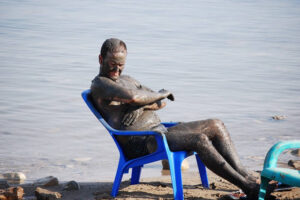
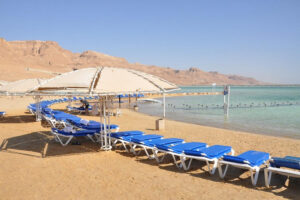
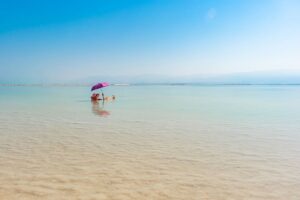
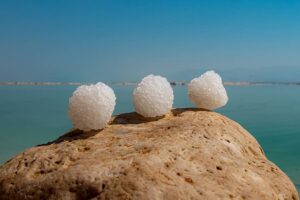
Going on a Day Trip to the Dead Sea
The Dead Sea is the perfect anchor for a day trip that combines history, nature, and relaxation. Here’s a suggested itinerary from Tel Aviv, including Masada and Ein Bokek – with a few alternatives along the way.
- Morning: Masada (2 hours from Tel Aviv)
- Explore the fortress via cable car or hike, marveling at ruins and views (2-2.5 hours).
- Drive to Ein Bokek: ~20 minutes.
- Midday/Afternoon: Dead Sea at Ein Bokek
- Float in the sea, apply therapeutic mud, and relax on the public beach (2-3 hours).
- Return to Tel Aviv: ~2.5 hours from Ein Bokek, or end in Jerusalem (~1.5 hours from Ein Bokek).
Alternatively, consider visiting Ein Gedi, a desert oasis with scenic hiking trails, refreshing waterfalls, and wildlife like ibex and rock hyrax, about 30 minutes from Ein Bokek. It’s a great stop to stretch your legs and enjoy a bit of nature between Masada and the Dead Sea.
This itinerary offers a practical and enriching full-day private trip from Tel Aviv. Including a tour of Jerusalem on the same day isn’t recommended due to time constraints, but you can easily start in Tel Aviv and end in Jerusalem. If you’re arriving on a cruise ship, various day trips can be arranged as shore excursions from Ashdod port.
Exploring Beyond the Dead Sea
If time allows, these nearby sites offer even more to explore:
- Qasr el-Yahud Baptismal Site: 85 km (53 miles) north of Ein Bokek, this historic site on the Jordan River is traditionally considered the place where Jesus was baptized. It offers a peaceful riverside setting, spiritual significance, and views across to Jordan just meters away.
- Qumran National Park: 65 km (40 miles) north of Ein Bokek, this archaeological site is famous for the discovery of the Dead Sea Scrolls. Explore the ancient settlement, view the caves where the scrolls were found, and visit a small museum showcasing artifacts from the area.
- The Good Samaritan Museum: 20 km (12 miles) east of Jerusalem, this open-air museum sits along the ancient road to Jericho. It features beautifully preserved mosaics and archaeological finds from Jewish, Christian, and Samaritan sites, all connected to the famous biblical parable of the Good Samaritan.
- AHAVA Factory, Visitor Center, and Shop: This popular stop, 50 km (30 miles) north of Ein Bokek, is where visitors can learn about the production of Dead Sea skincare products, join a short tour in the factory, and buy AHAVA’s famous mineral-based cosmetics directly at the source.
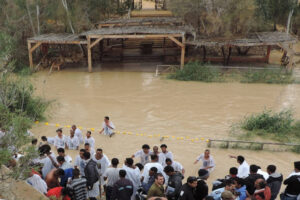
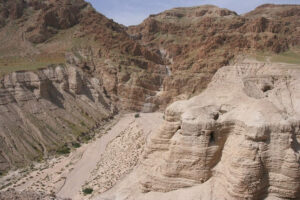
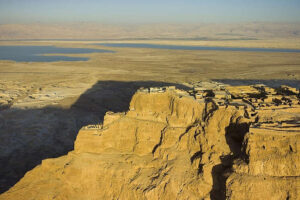
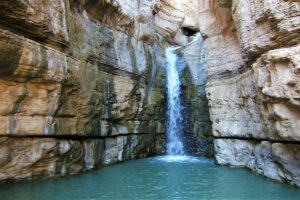
Why Visit the Dead Sea?
- The Dead Sea offers an unparalleled experience – floating in its waters, covering yourself in mud, and soaking in desert solitude. For history lovers, Masada’s story looms large, for nature enthusiasts, the stark landscape captivates. Paired with Ein Gedi’s greenery or Masada’s dramatic history, it crafts a day trip of striking contrasts. Plan your visit and dive into a wonder at Earth’s lowest edge.
Whether you seek relaxation, history, or a geological thrill, the Dead Sea leaves a lasting impression. Contact me with questions or itinerary ideas and let’s plan your perfect day trip in Israel together!
FAQ: Visiting the Dead Sea
Related Posts
More Guides From My Travel Blog with Tips for Upgrading Your Trip in Israel


